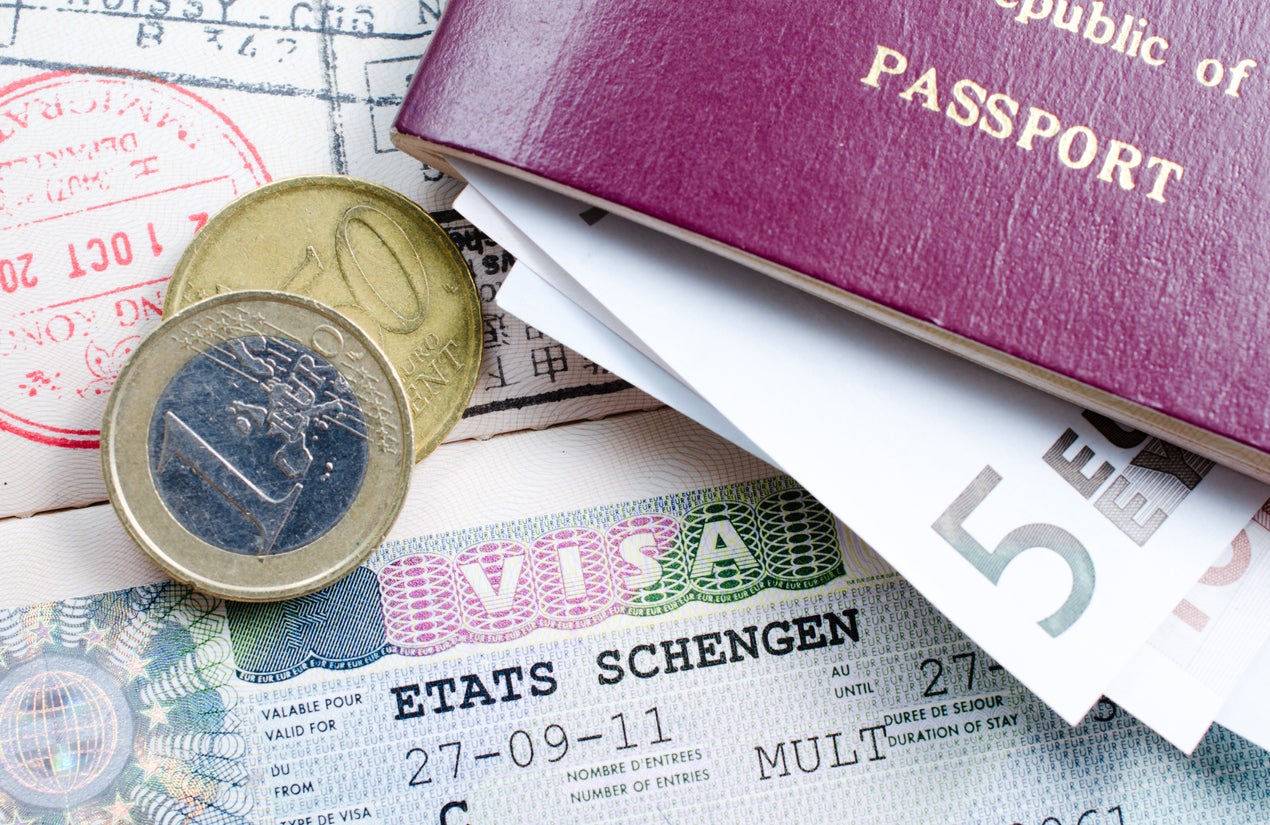Is now a good time to go on holiday to Disneyland Paris?
Simon Calder answers your questions on trips to France and passenger locator forms


Q I have booked to travel to Disneyland Paris for February half-term. All our vaccines and boosters are up to date. Do you think it’s a good time to visit Disneyland Paris with Covid cases so high in France at the moment?
I’m worried about Covid safety on the plane and at the airport, and at the resort itself. Do you think that having a vaccine passport, a Covid test within 24 hours of arrival and signing a sworn declaration should make it safer? Or should I change my date for the sixth time? I was thinking of rebooking for October 2022.
Charlotte
A Omicron is now so embedded everywhere in Europe that I cannot honestly say that any trip can be close to risk-free. On Wednesday, France reported 266,000 new Covid cases, around three times higher than the UK rate for the same day. All other things being equal, you are plainly at higher risk of contracting coronavirus in France than you are in the UK. Bear in mind that Covid rates are decreasing at a pretty good rate. But let me take each part of your trip in turn.
Airport: since my first “Covid-era” flight in June 2020, I have been conscious that some of the bottlenecks in the airport experience can present a risk. On the plane itself: well, everyone will have taken a lateral flow test before boarding, which should shrink the risk. The air conditioning on aircraft is pretty effective and everyone is supposed to wear a mask.
Transport to Disneyland: whether you take a taxi, a coach or the train, you will be at some risk, but mask-wearing (in my experience) is rigorously respected and enforced. Disney, like other big organisations, has its own protocols aimed at minimising risk – as will your hotel. But no one will claim to be perfect.
If you have special reasons for protecting against infection, you should certainly defer. But I am heading over to France next week fully prepared to contract Covid-19 (while of course observing all the rules and being sensible). I’d rather catch it while having some fun. And you should be able to enjoy the theme park while it is relatively empty.

Q When will the updated passenger locator form come online? We can’t complete it – as it still asks for the test code and if you don’t put it on you can’t go any further.
Kerry M
A The UK passenger locator form has been with us for 18 months, and in that time the online document has become progressively more complicated and onerous. The government wants to know all your personal details, your recent travel history (including details of any specific islands you might have visited) and where you will be going when you arrive in England, Wales, Scotland or Northern Ireland.
At present, it also demands to know the code number for the post-arrival test you have booked for the day you arrive in the UK or one of the two following days. This is not unreasonable, since the requirement continues to apply until 4am on Friday 11 February. After that, fully vaccinated arrivals need not take a test.
I am interested that you have tried to complete the form – because the first rule is that you cannot do so until 48 hours before your intended arrival time in the UK. This period is set to be extended to 72 hours some time later in February, but before that the government has a trickier problem.
The passenger locator form must be updated by 4am on Wednesday 9 February, which is 48 hours before the rule change. It must also be able to accept people who are turning up before the test requirement ends, as well as those arriving after that time will be able to complete it. Presumably that is why we have not been able to see the form, nor assess whether it has, indeed, been simplified as the transport secretary, Grant Shapps, promised.
Unvaccinated travellers will need to continue to book a pre-departure and post-arrival test, but the day eight test will end – along with the need to self-isolate. Anyway, I would not worry about completing your form until the evening before you return, or even on the day. I plan to arrive at 8.30am on Friday 11 February and will complete my form before reaching the Eurostar terminal in Paris.

Q Can you confirm that the European Union will be making an Esta-type online visa for all non-EU countries mandatory in 2023 at a cost of €7. Is that really happening?
Name supplied
A Yes. The planned Electronic Travel Information and Authorisation System (Etias) is a pan-European initiative that the UK was active in developing while still a member of the EU. It is aimed at strengthening the Schengen Area – comprising most European Union nations plus Switzerland, Norway, Iceland and some smaller countries.
The EU says it will be “a largely automated IT system created to identify security, irregular migration or high epidemic risks posed by visa-exempt visitors travelling to the Schengen states, whilst at the same time facilitating crossing borders for the vast majority of travellers who do not pose such risks.” By requiring the traveller to provide lots of personal and journey information in advance, the plan is that border checks will become more secure and, ideally, faster.
The system is broadly modelled on the US Esta (Electronic System for Travel Authorisation) scheme. The EU insists “Etias authorisation is not a visa”, but I call it a Eurovisa because the traveller must:
1 Apply in advance to visit a country/region and provide lots of personal information
2 Pay money: €7 (£6) for three years or until your passport ceases to be valid for travel to Europe, whichever is the soonest
3 Be issued with a permit
The scheme was originally planned to come into effect in 2021 but I estimate it is running a couple of years late. It will be launched alongside the EU’s long-planned Entry/Exit System (EES), which requires facial and fingerprint biometrics to be collected from every non-EU visitor to the Schengen Area. This could cause problems at ports and the Eurotunnel terminal in Folkestone because systems are not set up for such passenger processing.
The UK plans its own system; the government promises “an Electronic Travel Authorisation (ETA) scheme for those passengers visiting the UK … who do not currently need a visa for short stays”. This will probably involve a charge to cover the cost of administration, as is the case with Esta.

Q On Wednesday I’m travelling to Istanbul for a week. I am fully vaccinated and I am very excited. I’m also planning to take a long weekend in Europe at the end of February too – somewhere where I don’t need to take an antigen test.
Are there any extra restrictions you’re aware of in relation to previously travelling to Turkey, returning home, then travelling to another country a week or so after? Or does the fact I return home make everything OK?
James of Port
A How lovely to be in Istanbul. While you can expect Turkey’s largest city to be cold (right now the temperature is barely above freezing), it will be beautiful and welcoming – and almost empty of tourists. Before the Covid crisis, at this time of year there would be a lot of visitors from Asia in Istanbul (and other great European cities), taking advantage of low-season prices. They are absent this winter, which is a cause of considerable concern. But it means you will have the city to yourself, from a tourism point of view.
Generally, countries want to know where you have been over the past 10 days or two weeks. The German passenger locator form, for example, wants this information at the very start of the process. And returning home to the UK does not erase your record.
Some people may choose to omit details of previous trips, often because they can’t be bothered rather than because they are seeking to conceal the information. But given that frontier officials can easily check from the stamps in your passport, this is a foolish approach.
As new Covid infection rates in Turkey are currently about the same as in the UK (and much lower than, for example, France), I don’t suppose any countries will have a problem with your visit to Turkey. But as always in these uncertain days, I recommend that you book your next trip close to departure – just in case (heaven forbid) a new variant of concern is traced to Turkey.
Email your questions to s@hols.tv or tweet @SimonCalder
Join our commenting forum
Join thought-provoking conversations, follow other Independent readers and see their replies
Comments
Bookmark popover
Removed from bookmarks